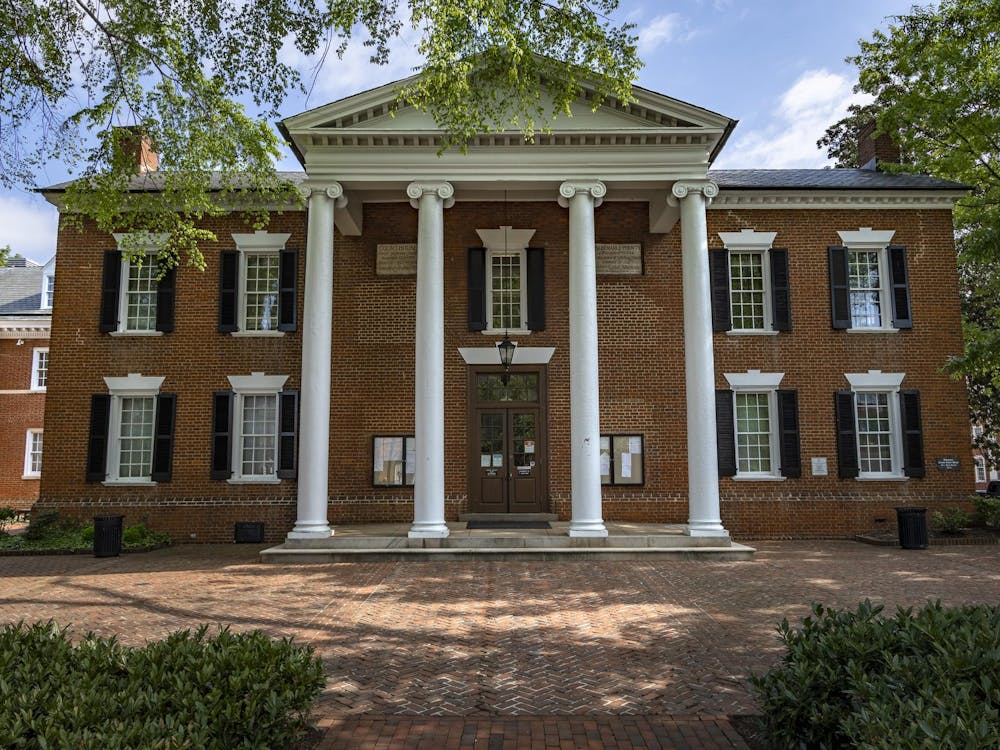Although one more weekend of March Madness still remains, Jimmer-mania finally has come to a halt. As I watched Jimmer Fredette's final game in a college uniform, I was awed - not by the 32 points that he scored, but rather by the 29 shots that he took and from where he took them. I admittedly have watched Fredette play only five or six times this year - despite ESPN's efforts to create Jimmer hysteria, the Brigham Young star is rarely seen on the East Coast - but I've distinguished the following trends in the way he plays: wild shots, poor defense and a lack of teamwork. Although Fredette may lead the voting for National Player of the Year, his reckless play has left his Cougars at home watching the Final Four.
Let me set a scene for you. You're a Division I men's basketball coach. Your team is down by two points with less five minutes left in the Sweet 16. Your shooting guard takes the outlet pass, dribbles past halfcourt, and then suddenly bombs a three-pointer from 30 feet out with 29 seconds left on the shot clock - reminiscent of a joke shot in a game of "H-O-R-S-E." You want to yank that player out of the game, right? The player is selfish and stupid for taking that shot, right? You are absolutely furious, right? But if I tell you that player is Jimmer Fredette, you probably don't think anything of it. That's just another day in the life of a BYU basketball coach. True, BYU's third-leading scorer was just kicked off of the team, and without Jimmer the Cougars have fewer offensive weapons than the Carolina Panthers. But honestly, my fifth-grade YMCA basketball team could find a better shot than the one Jimmer just took.
How can anyone say a guy who scored 32 points cost his team the game? It's the way that he scored those 32 points. I see Fredette as the Kobe Bryant of college basketball. He's a great player who can take control of a game at any point, but if he tries to do so by himself and refuses to include his teammates then the game is lost. Of the Lakers' 20 losses this season, 14 of them have come when Kobe exceeds his average of 19.9 shots per game. Similarly, during BYU's last four losses, Fredette shot the ball 25, 25, 23 and 29 times. He averages 20.6 shots per game, and for the most part, they occur when the likely winner of the Naismith Award is fading out-of-bounds, covered by two defenders or well behind the NBA three-point line - in short, they're not good shots.
But shouldn't a guy who averages 28.9 points per game get the green light to keep playing the way he plays? Let's compare Jimmer to some of his All-American counterparts. Kemba Walker, Nolan Smith and Jared Sullinger score 23.9, 20.6 and 17.2 points per game, but while taking only 18.1, 15.3 and 11 shots per game, respectively. If you were to give any of those guys 20 shots a game in the Mountain West Conference, their averages would increase dramatically.
But that's just speculation. I'm sure Jimmer's coach wouldn't dare say anything bad about his team's leading scorer. When asked if Fredette takes bad shots, BYU coach Dave Rose told ASAP Sports, "Oh, yeah, he takes a lot of bad shots." Whoops, I guess not.
What about his teammates? "The weird thing is, [his defense] has gotten progressively worse over the year. From the start, he's never really been accountable to it, but it's just gotten looser as the year's gone on." That's what Fredette's own teammate, Nick Martineau, told ESPN's Rick Reilly earlier this week. Maybe I'm not the only one who feels this way.
I'm not trying to say that Fredette is a bad player, because he definitely is not. For a guy to score double digits in all 37 of his team's games is incredible, and for that same guy to almost single-handedly lead his poor BYU supporting cast to a 32-5 record is even more incredible. But great teams need balance to reach the Final Four. Only nine players have shot more than 30 percent of their team's shots during the tournament and still advanced to the Final Four, with Jay Williams shooting the highest percentage, 36.9 percent, during Duke's 2001 campaign. During the five games prior to the NCAA Tournament, Fredette fired off nearly 46 percent of his team's shots. In my eyes, Jimmer needed to find a way to get his teammates involved in games if he hoped to be remembered as one of the all-time great college basketball players. Unfortunately, he did just the opposite and shot Brigham Young right out of the big dance.






